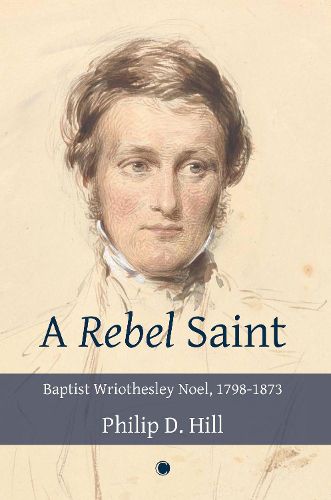Readings Newsletter
Become a Readings Member to make your shopping experience even easier.
Sign in or sign up for free!
You’re not far away from qualifying for FREE standard shipping within Australia
You’ve qualified for FREE standard shipping within Australia
The cart is loading…






Baptist Noel (1798-1873) has been described by the American Evangelical Anglican historian Grayson Carter as a towering figure in nineteenth-century Evangelicalism, but he has been written out of its story because he was a saintly rebel who counted a good conscience more valuable than a good standing. This ultimately led him to abandon his glittering Anglican career and aristocratic family to become a Baptist minister.
A Rebel Saint is a comprehensive study of Noel’s life, work and thought, correcting the neglect of his remarkable Anglican and Baptist ministries and his many years of prominence in Evangelical life. Philip Hill ably illustrates his influence on issues including the Irvingite controversy, the opposition to the Tractarian movement, and Evangelical ecumenism, and explains his centrality in the establishment of the Evangelical Alliance and the London City Mission. Scholars of Evangelical history will greatly value this account of a pivotal figure, while all will be inspired by his story of sacrifice of fame and fortune for the sake of obeying religious conscience.
$9.00 standard shipping within Australia
FREE standard shipping within Australia for orders over $100.00
Express & International shipping calculated at checkout
Baptist Noel (1798-1873) has been described by the American Evangelical Anglican historian Grayson Carter as a towering figure in nineteenth-century Evangelicalism, but he has been written out of its story because he was a saintly rebel who counted a good conscience more valuable than a good standing. This ultimately led him to abandon his glittering Anglican career and aristocratic family to become a Baptist minister.
A Rebel Saint is a comprehensive study of Noel’s life, work and thought, correcting the neglect of his remarkable Anglican and Baptist ministries and his many years of prominence in Evangelical life. Philip Hill ably illustrates his influence on issues including the Irvingite controversy, the opposition to the Tractarian movement, and Evangelical ecumenism, and explains his centrality in the establishment of the Evangelical Alliance and the London City Mission. Scholars of Evangelical history will greatly value this account of a pivotal figure, while all will be inspired by his story of sacrifice of fame and fortune for the sake of obeying religious conscience.